Petrochemicals
Saudi Aramco’s $7 bn Korea project mired by labor shortage
The petrochemical plant under construction is designated as a national security asset
By Nov 10, 2023 (Gmt+09:00)
3
Min read
Most Read
LG Chem to sell water filter business to Glenwood PE for $692 million


Kyobo Life poised to buy Japan’s SBI Group-owned savings bank


KT&G eyes overseas M&A after rejecting activist fund's offer


StockX in merger talks with Naver’s online reseller Kream


Mirae Asset to be named Korea Post’s core real estate fund operator


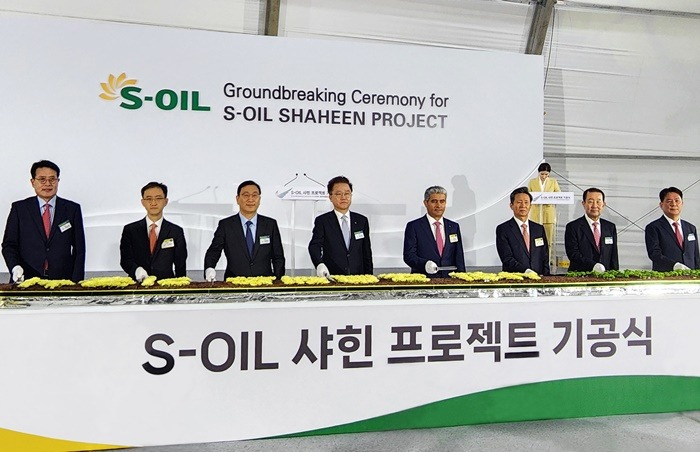
Saudi Aramco’s $7 billion petrochemical project in South Korea, in what would be its largest-ever investment in the country, has hit a stumbling block due to labor shortages, particularly the lack of manual workers at its plant construction site, according to industry officials on Friday.
On top of South Korea’s chronic workforce shortage in the manufacturing sector, its strict visa rules for foreigners working at national security facilities such as petrochemical plants have left the project, dubbed Shaheen Project, floundering.
In March this year, Saudi Aramco broke ground on the facility in Ulsan, 300 km southeast of Seoul, where its South Korean arm S-Oil Corp. runs crude refining and petrochemical plants. South Korean President Yoon Suk Yeol attended the ceremony.
The project is to build the world’s largest steam cracker, deemed as a low-emission naphtha cracking center, with an annual capacity of 1.8 million tons of ethylene, as well as high value-added petrochemical products used as raw materials of synthetic resins such as plastics.
It requires as many as 17,000 workers a day, with its facility construction scheduled for completion in June 2026.
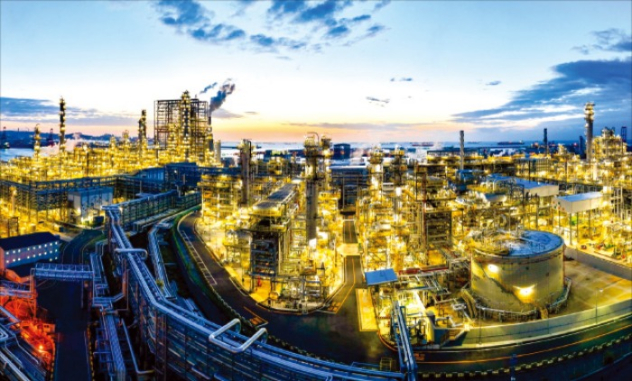
SYMBOLE OF PARTNERSHIP
The Shaheen Project is seen as a symbol of economic cooperation between Korea and Saudi Arabia. Both countries agreed to form partnerships in the areas of construction, infrastructure and defense industries during the visit by Saudi Arabia’s Crown Prince Mohammed bin Salman in Seoul in 2022.
At the March groundbreaking ceremony for the Shaheen Project, Yoon vowed to relax regulations to ensure the smooth progress of the project.
To address the labor shortage, S-Oil has held discussions about hiring foreign workers with the Foreign Workforce Policy Committee, under the Prime Minister’s office, since the beginning of this year, but no progress has been made.
Saudi Aramco is the top shareholder of S-Oil., South Korea’s No. 3 crude refiner, with a 63.4% stake.
GOVERNMENT DEPARTMENTS INVOLVED
The project involves several government departments in South Korea: the Office for Government Policy Coordination; the Ministry of Trade, Industry and Energy; the Ministry of Land, Infrastructure and Transport; and the Ministry of Employment and Labor.
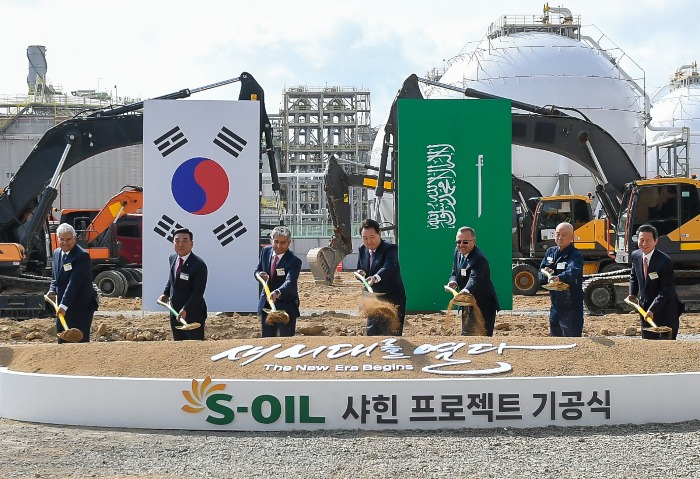
Industry officials said those ministries are pushing each other to take responsibility on the grounds that petrochemical plants are national security facilities, at which foreign employees are not allowed to work due to concerns about technology leakage.
“Consultations between ministries have not yet been completed,” said an official from the Office for Government Policy Coordination. “There remain issues that need to be resolved.”
A plant construction company official expressed his frustration about the regulations on hiring foreign nationals, which has been blocked in the petrochemical industry for 17 years.
“The construction industry is always short of 100,000 to 150,000 workers,” he said. “Plant facilities are struggling because they can’t find people.”
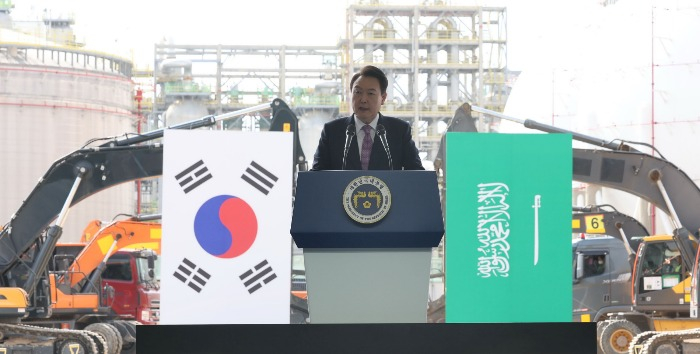
An official from the Ministry of Land, Infrastructure and Transport said that the construction industry in South Korea normally needs 1.65 million workers on a daily basis, including both skilled and unskilled workers, but the actual supply is about 1.5 million.
As an example, Samsung Electronics Co. hires about 50,000 construction workers to build its Pyeongtaek semiconductor campus in Gyeonggi Province, further aggravating the labor shortage.
TECHNOLOGY LEAKAGE
Regarding concerns about technology leakage, Oh Chi-don, a former researcher at the Korea Institute of Machinery and Materials, said there is little possibility for foreign manual workers to leak technology.
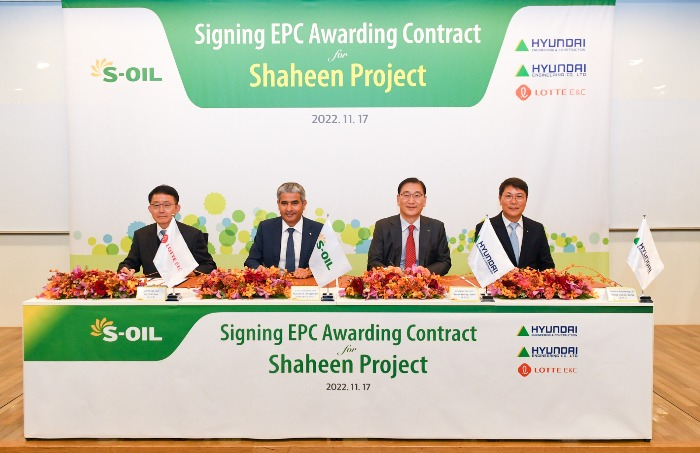
Last month, President Yoon instructed Prime Minister Han Duck-soo to come up with a plan to streamline the government’s foreign human resource management systems so that foreign human resources can be managed comprehensively and flexibly.
However, there seems to be no immediate response to the call for a relaxation of visa rules on foreign workers.
“We are considering whether to lift such restrictions for an exceptional case, but no agreement has been reached between ministries involved,” a senior government official told The Korea Economic Daily.
Write to Woo-Sub Kim and Yong-Hee Kwak at duter@hankyung.com
Yeonhee Kim edited this article.
More to Read
-
 Business & PoliticsS.Korea to add India, Lithuania to list of nations eligible for E-9 visa
Business & PoliticsS.Korea to add India, Lithuania to list of nations eligible for E-9 visaOct 31, 2023 (Gmt+09:00)
3 Min read -
 EconomyKorea to retain more skilled foreign workers with visa status upgrade
EconomyKorea to retain more skilled foreign workers with visa status upgradeDec 16, 2022 (Gmt+09:00)
2 Min read -
 Tech, Media & TelecomS.Korea to ease internship visa rules for foreign talent
Tech, Media & TelecomS.Korea to ease internship visa rules for foreign talentAug 05, 2022 (Gmt+09:00)
3 Min read
Comment 0
LOG IN


